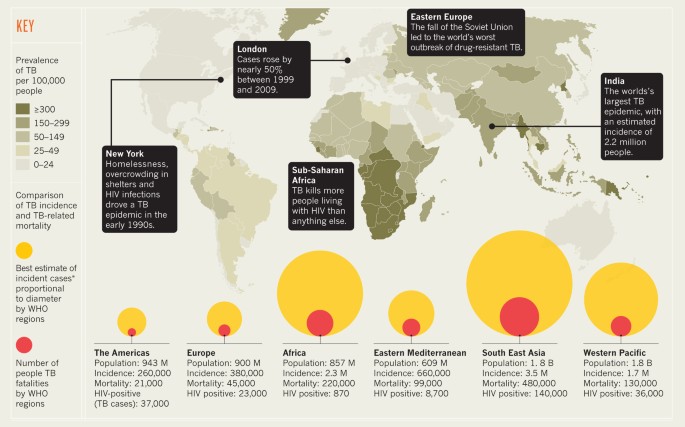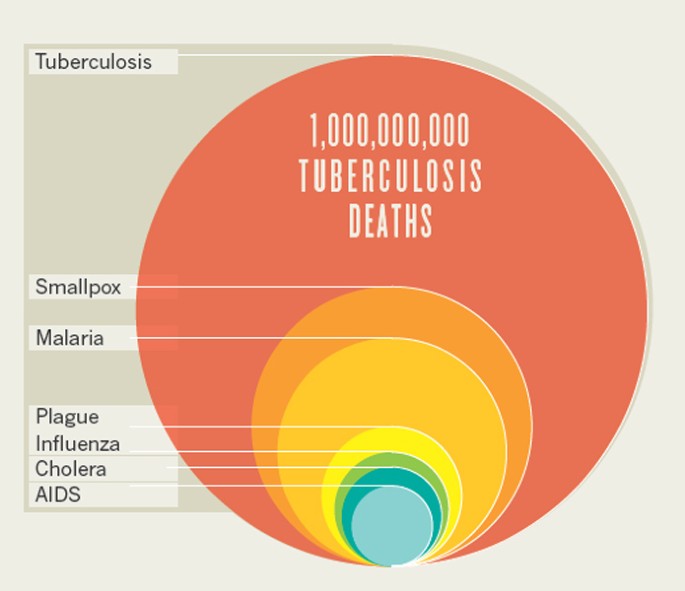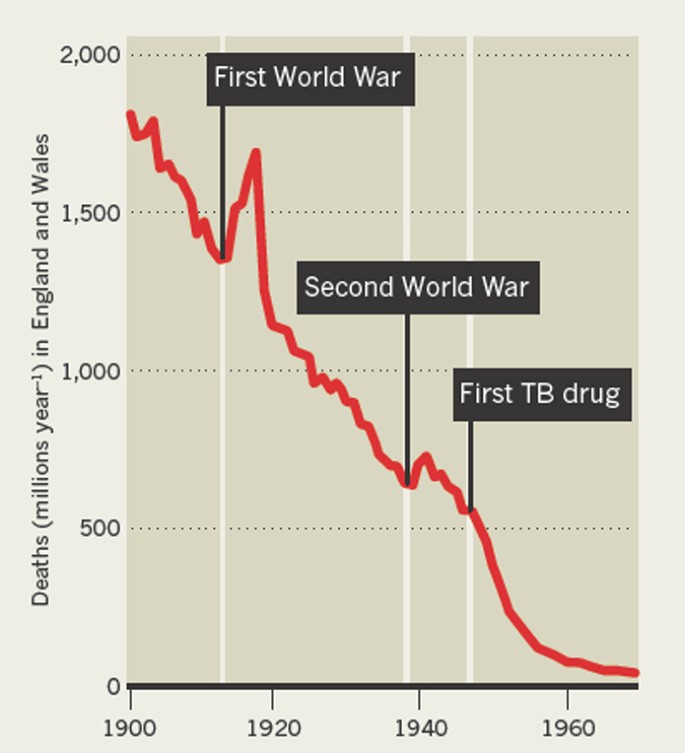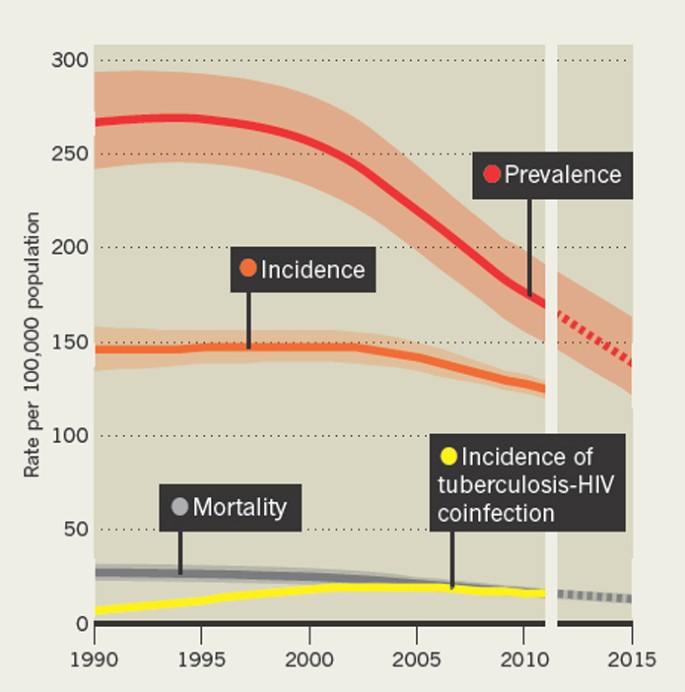Tuberculosis is one of the world's most lethal infectious diseases. Further progress in consigning it to the past is a massive challenge. By Tom Paulson.
Global burden of tuberculosis
In 2011, nearly 9 million people fell ill from TB and 1.4 million died, mostly in poor countries, with 60% of cases in Asia and 24% in Africa (Fig. 1).
The biggest killer
Tuberculosis has killed more than any other infectious disease in history. Over a billion lives in the past two hundred years (Fig. 2).
The 100 years battle
Rising living standards in industrialized nations, interrupted by two World wars, and new antibiotics had tuberculosis in decline (Fig. 3).
Slow progress
Over the past fifteen years, an invigorated anti-TB effort has begun to reduce the global burden of disease worsened by HIV (Fig. 4).
传播周期
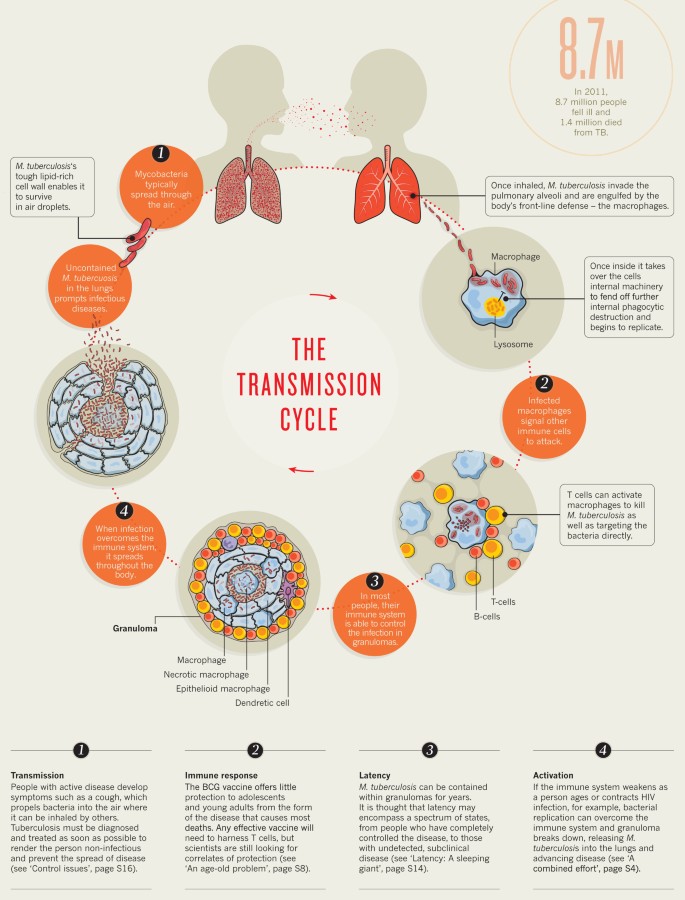
Figure 5
Rights and permissions
About this article
Cite this article
Paulson, T. Epidemiology: A mortal foe.Nature502,S2–S3 (2013). https://doi.org/10.1038/502S2a
Published:
Issue Date:
Further reading
An immunomodulatory role for the Mycobacterium tuberculosis Acr protein in the formation of the tuberculous granuloma
FEBS Letters(2021)
Distinct functional properties of secretory l-asparaginase Rv1538c involved in phagosomal survival of Mycobacterium tuberculosis
Biochimie(2021)
Spatial clustering of drug-resistant tuberculosis in Hunan province, China: an ecological study
BMJ Open(2021)
B-Cells and Antibodies as Contributors to Effector Immune Responses in Tuberculosis
Frontiers in Immunology(2021)
Human ancient DNA analyses reveal the high burden of tuberculosis in Europeans over the last 2,000 years
The American Journal of Human Genetics(2021)
Comments
By submitting a comment you agree to abide by ourTermsandCommunity Guidelines. If you find something abusive or that does not comply with our terms or guidelines please flag it as inappropriate.

